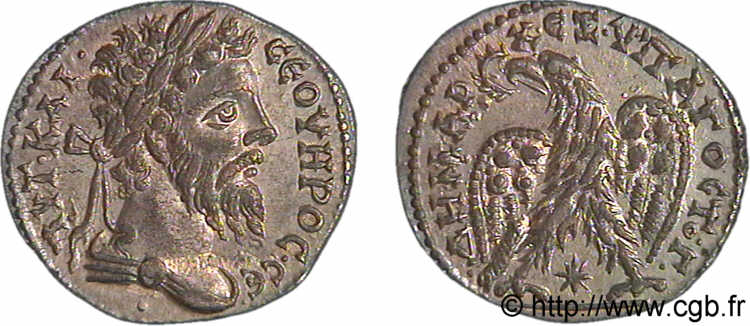v08_0285 - SEPTIMIUS SEVERUS Tétradrachme syro-phénicien
MONNAIES 8 (2000)
Starting price : 533.57 €
Estimate : 762.25 €
Realised price : 533.57 €
Starting price : 533.57 €
Estimate : 762.25 €
Realised price : 533.57 €
Type : Tétradrachme syro-phénicien
Date: 207-208
Mint name / Town : Laodicée, Syrie, Séleucie et Piérie
Metal : billon
Diameter : 25 mm
Orientation dies : 12 h.
Weight : 13,23 g.
Emission: 2e
Coments on the condition:
Exemplaire de qualité exceptionnelle
Catalogue references :
Predigree :
Cet exemplaire vient de la vente Poindessault du 15/04/1992, n° 93, c’est le 1149_016 de la base TSP
Obverse
Obverse description : Buste lauré et drapé de Septime-Sévère à droite vu de trois quarts en avant (A*01).
Obverse legend : AUT. KAI. - SHUHROS. SE - .
Obverse translation : (L'empereur césar Sévère auguste).
Reverse
Reverse description : Aigle debout de face, les ailes déployées, la tête tournée à gauche, tenant une couronne dans son bec ; entre les pattes de l'aigle, une étoile à huit rais.
Reverse legend : DHMAR-C EX. UPATOS TO. G.
Reverse translation : (Puissance tribunitienne, consul pour la troisième fois).








 Report a mistake
Report a mistake Print the page
Print the page Share my selection
Share my selection Ask a question
Ask a question Consign / sell
Consign / sell
 Full data
Full data















